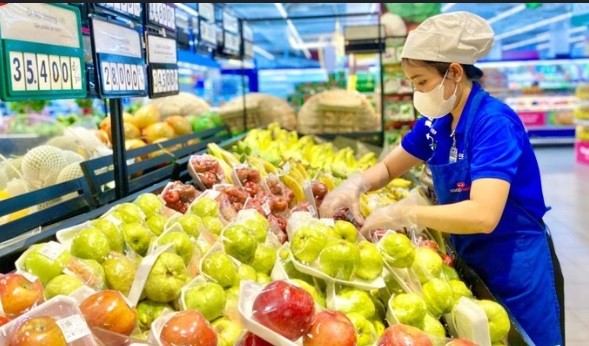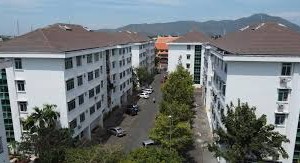
The municipal Department of Industry and Trade has lately cooperated with districts, industrial parks, and export processing zones to launch large-scale mobile markets for the first time, providing essential goods at discounted prices directly to workers, particularly those in industrial zones. This has greatly eased the minds of laborers when prices of common commodities are increasing due to the recent base salary rise.
Major retailers such as MM Mega Market, Saigon Co.op, P&G, Binh Tay, Saigon Food, and Cholimex have been participating, offering significant discounts of up to 80-90 percent on select items. These mobile markets have been strategically deployed across the city from August 6 to September 15, with each location operating for two days.
They have attracted the attention of a large number of laborers around industrial parks and export processing zones thanks to below-market prices, quality assurance, and a surplus supply.
HCMC was a pioneer in implementing price stabilization programs as early as 22 years ago. Its proactive approach in securing goods has helped stabilize the market for its 10 million consumers, especially during peak seasons like Tet and national holidays.
Statistics from the HCMC Industry and Trade Department reveal that the market stabilization program has supplied 79 percent of the market share of poultry eggs, 33.8 percent of poultry meat, 28.2 percent of cooking oil, 21.3 percent of sugar, 18.6 percent of livestock meat. The total revenue of the program after the Covid-19 pandemic is estimated at more than VND22 trillion (US$883 million) per year.
The city has also developed a robust and sustainable supply chain, with nearly 11,000 price stabilization points across the city. Notably, the amount of price-stabilized goods accounts for 21-32 percent and 24-41 percent of market share in normal months and the Tet month respectively, which is enough to influence and regulate the market.
While the initiative has been successful, stakeholders have suggested improvements such as:
- Extended operating hours and duration of mobile markets from two to three or four days.
- Establishing permanent mobile markets in 17 industrial parks and 2 export processing zones so that laborers can access essential commodities at reasonable prices at any times.
- Offering more incentives to businesses participating in the program like low and stable loan interest rates.
Obviously, offering goods at stabilized prices is to ensure that workers have consistent access to affordable goods, thereby improving their quality of life. Additionally, the city is working to develop a sustainable and ‘clean’ supply chain that prioritizes quality and affordability.



















)




